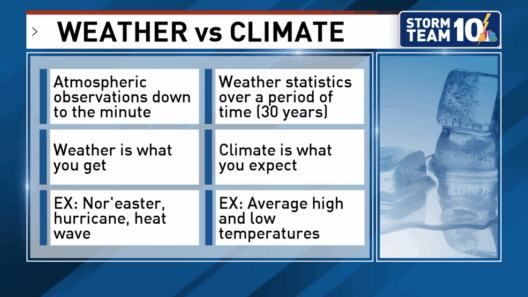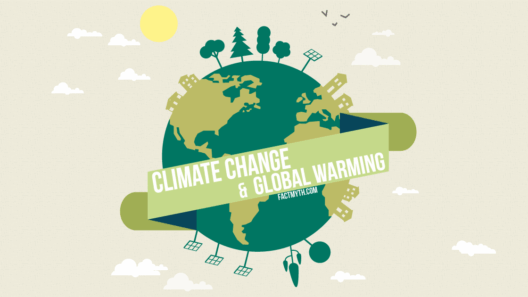Imagine for a moment that you can change the trajectory of our planet’s future. Would you rise up to meet the challenge? If you find this proposition intriguing, you are not alone. The quest to slow global warming has captivated minds and stirred hearts across the globe. As the consequences of climate change become increasingly dire, understanding effective strategies to combat it has never been more crucial. This article delves into actionable steps that individuals, communities, and nations can take to mitigate climate change.
Awareness is the first step in this endeavor. The climate crisis is multifaceted, spanning various sectors of society. As we explore effective strategies for reducing climate change, it becomes evident that a combination of innovative approaches and systemic changes is essential.
Is it possible to reimagine our relationship with the environment? Yes! By adopting sustainable practices, we might forge a future that is not just livable but thriving.
Embracing Renewable Energy Solutions
A pivotal strategy in the battle against global warming is transitioning from fossil fuels to renewable energy. Solar, wind, and hydroelectric power offer clean alternatives that significantly reduce greenhouse gas emissions. The advancement of technology has lowered the cost of these energy sources, making them increasingly accessible to the average consumer.
Imagine harnessing the sun’s energy to power your home, or using wind turbines that grace the landscape, transforming gusts into electricity. This shift not only curtails pollution but stimulates economies through job creation in emerging green industries.
Additionally, advocating for governmental policies that promote renewable energy can amplify these benefits. By supporting initiatives that provide tax credits for solar installations or grants for wind projects, citizens can incentivize a broader shift toward sustainable energy.
Rethinking Transportation
The transportation sector is one of the most significant contributors to greenhouse gas emissions. So how can we transform our travel habits? Embracing public transit, biking, and walking presents an opportunity to cut emissions drastically. Dive into the world of electric vehicles, which, despite initial costs, offer long-term environmental benefits and could significantly reduce reliance on fossil fuels.
Moreover, urban planning plays a vital role in this transformation. Investing in infrastructure that promotes public transport, alongside pedestrian-friendly designs, enhances accessibility and reduces vehicular dependency. The result is multifaceted: cleaner air, less traffic congestion, and healthier communities.
Each small change in our daily commutes can lead to monumental impacts on carbon emissions. Perhaps it’s time to consider a carpool scheme or opt for a lively bike ride to work. The cumulative effect of these choices can pave the way for a cleaner, greener future.
Waste Management: An Overlooked Frontier
The specter of waste looms large in the fight against climate change. Traditional waste management practices contribute significantly to greenhouse gas emissions, particularly methane, which is released from organic materials in landfills. Rethinking our approach to waste is not just practical; it is imperative.
Practices such as composting, recycling, and zero-waste strategies encourage a circular economy where materials are reused rather than discarded. Educational campaigns can empower individuals to adopt these practices in their own lives, creating ripple effects within communities. By reducing our waste footprint, we not only diminish emissions from landfills but also conserve resources and promote biodiversity.
Moreover, engaging in local initiatives such as community clean-ups and advocacy for improved recycling facilities can galvanize collective action. Are you ready to lead the charge in diminishing waste in your neighborhood? Collaboration often yields greater results, transforming the act of reducing waste into a community event.
Advocating for Sustainable Agriculture
The way we produce and consume food profoundly impacts the environment. Industrial agriculture is a leading driver of deforestation, biodiversity loss, and significant greenhouse gas emissions. Implementing sustainable agricultural practices can mitigate these effects while ensuring food security.
Supporting local farmers who employ organic methods, such as crop rotation and permaculture designs, can amplify this positive impact. Consumer choices matter—by opting for seasonal, local produce, individuals can help reduce emissions associated with food transportation and decrease the demand for resource-intensive monoculture farming.
Furthermore, education about the benefits of plant-based diets can empower individuals to make informed choices that are both health-conscious and environmentally friendly. Could a small shift in eating habits lead to substantial changes in agricultural practices? The answer could be a resounding yes.
Engaging in Climate Policy
Perhaps the most formidable weapon we wield against global warming is the power of policy. Grassroots movements have orchestrated significant changes in environmental policy, from local initiatives to international agreements. Engaging in advocacy work, whether through writing to representatives or participating in climate marches, raises awareness and promotes legislative action.
Understanding the nuances of climate policy—such as carbon pricing, environmental regulations, and renewable energy incentives—can further empower individuals and communities to demand meaningful change from their governments.
As we consider our roles in this intricate web of systems, the question arises: are we willing to take action? The answer lies within collective determination and accountability.
In conclusion, the challenges presented by global warming are indeed daunting, but they are not insurmountable. From transitioning to renewable energy and rethinking transportation to revolutionizing waste and advocating for sustainable agriculture, effective strategies abound. The time to act is now. By embracing these strategies, we can slow global warming and inscribe a legacy of resilience for future generations. With heart and resolve, we can forge a path toward a more sustainable planet, one informed action at a time.







